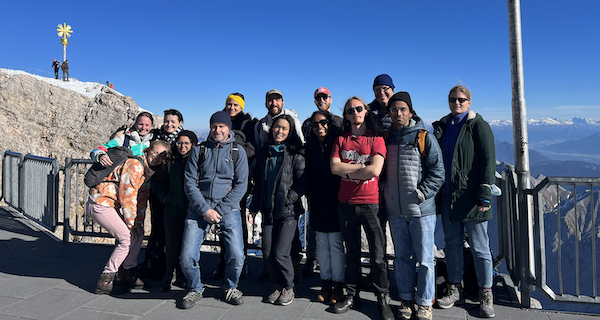Program Information

Group photo: Members of the Doctoral Program Environment and Society on a field trip to the Schneefernerhaus on Zugspitze in October 2022.
Profile
The transformation of the environment is one of the greatest challenges facing us at present and in the future. The environment and human society are inextricably linked; they impact one another. Ecological changes effect societal power structures and vice versa. The complex interrelationship between environment and society requires attention from multiple academic disciplines and a dialogue between the sciences and humanities.
The Doctoral Program Environment and Society promotes both disciplinary depth and interdisciplinary approaches. It also offers opportunities for international network building. The members of the doctoral program’s Academic Board belong to different disciplines and fields, including Human Geography, Environmental Humanities, History, American Studies, Anthropology, and Comparative Literature.



